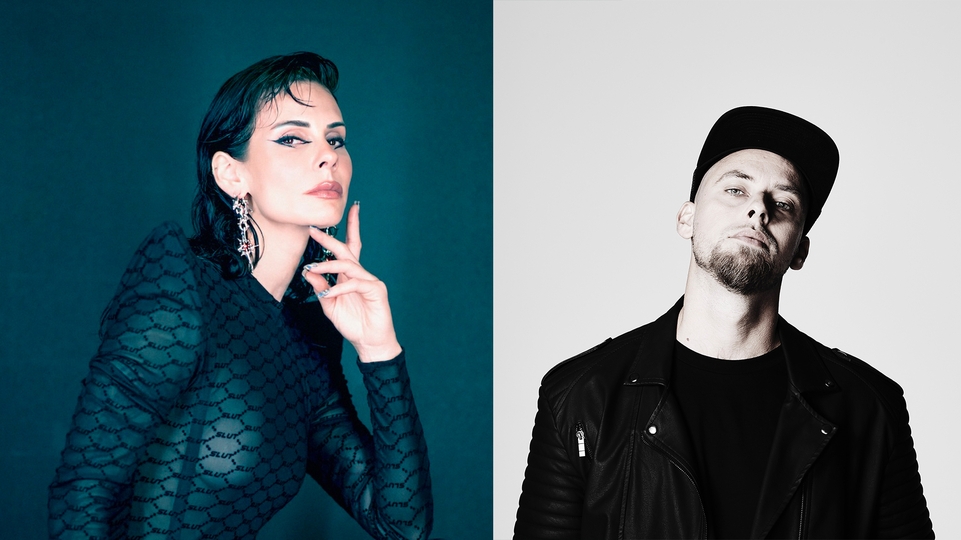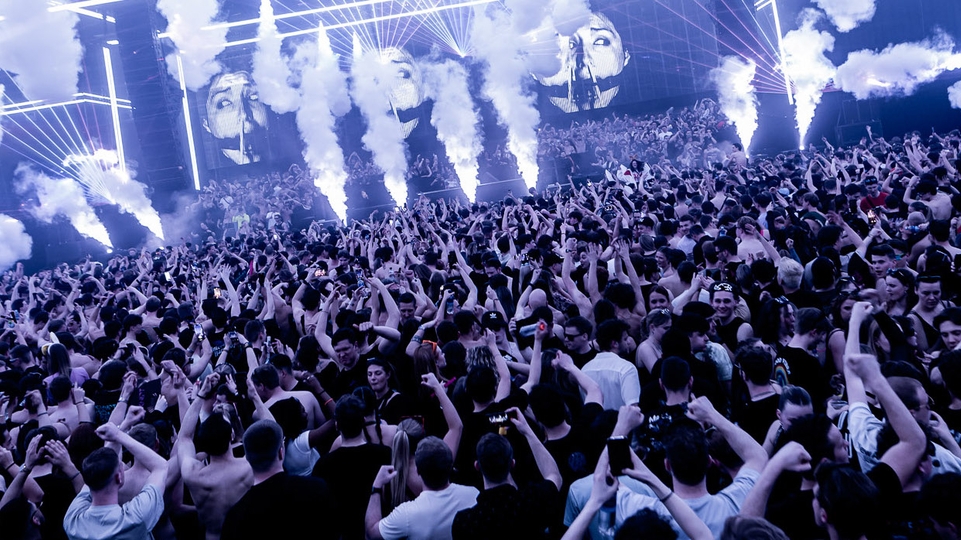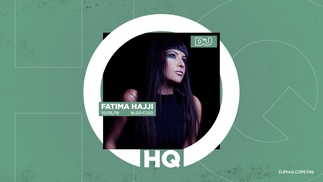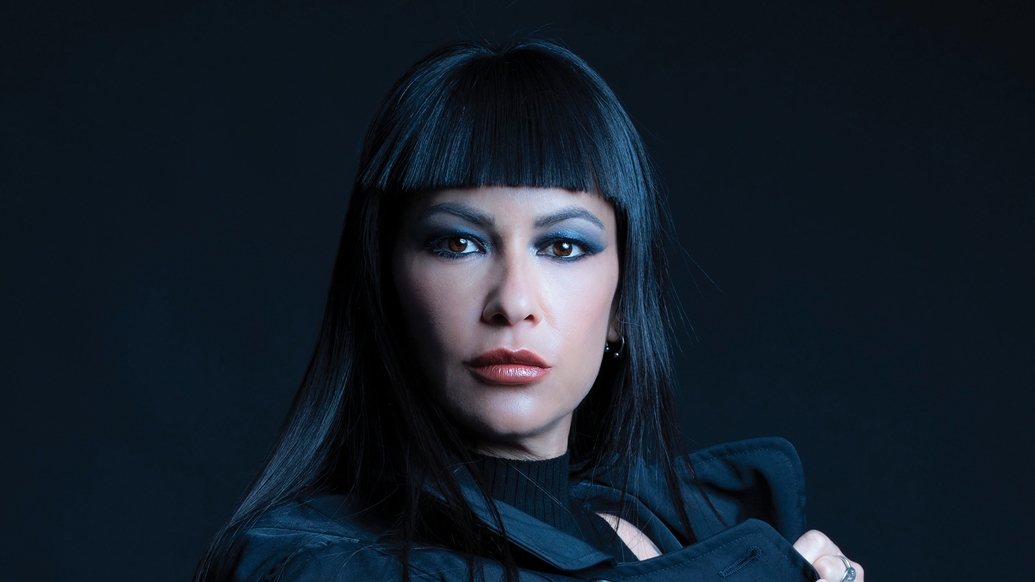
Fatima Hajji: a force of nature
Fatima Hajji chats to DJ Mag Ibiza about the secret to a long career, her favourite spots on the island, and the making of her forthcoming record
Fatima Hajji lives many lives. Less than a week ago she was behind the decks with Carl Cox at Wake Up & Dream festival in Coruña, Northern Spain. Today, she is back home in rural Madrid — “a small village near the mountains”, to be precise — kept company by her beloved “pack” of two cats and two dogs. It’s a duality which the Spanish techno veteran relies upon to stay at the forefront of the sound — which she has done for more than two decades.
In the past 12 months alone, Hajji has played over 120 gigs, as well as navigated a summer with 25 festival slots in 2023. “I came from Australia a few weeks ago and have a US and South America tour in September too,” she laughs. It sounds exhausting, but for Hajji, it’s just life. Her mode of hard techno — fast and functional with seriously punchy kicks — has garnered her swathes of fans across almost every corner of the globe, including the party playground of Ibiza, where she returned for four shows this summer. “Ibiza is the place that every DJ wants to be,” she fizzes excitedly, “it’s like a portal to the rest of the world.”
For Hajji, growing up in the Northern territory of Salamanca, the White Isle was an illusive techno paradise. The daughter of a grocery store owner mother and truck driver father, Hajji (whose father immigrated to Spain from Morocco) had a far from typical childhood. Encouraged to grow up quickly and quietly, she started working in the family store at age 12, while her peers were out playing and going to school. “My childhood was not especially fun,” she muses, “I had started to work too early and the rules at home were too strict.” Music, Hajji recalls, was an “escape” during those tenebrous early years. Her father often played Arabic music around the house, or in his truck, as a way to stay connected to his roots, from traditional Moroccan rhythms to Algerian raï, which the young Spaniard soaked up gaily. “Music let my mind be free and happy,” she affirms. “It was more than a feeling, more than fun.”
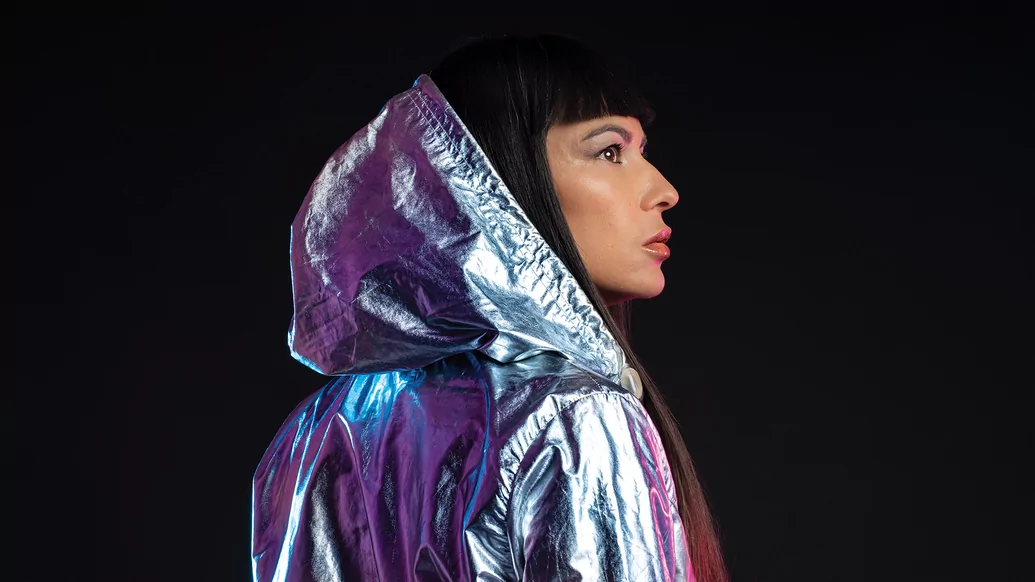
It would be some years later though that Hajji first heard techno. Her older brothers, after steadily making their way through the city’s local rock and punk bands, worked up an appetite for dark techno, returning home with tapes of DJ sets recorded at underground parties around Salamanca. Too young to attend herself, Hajji would steal her brothers’ K7 cassette deck and get lost in the heady DIY sounds. “My earliest influences were those cassettes with recorded mixes from DJs who played at my area,” she reminisces fondly, “hard grooves and dark techno from the end of the ’90s.”
At 16, with her penchant for electronic music steadily growing, Hajji found a local store selling techno vinyl with an advert for mixing lessons on the door. It immediately caught her attention and without telling a soul, she attended classes for almost four months. It was only after signing up for a local DJ contest that her brother and parents would catch on — spotting her name printed on a party flyer. Despite it being her first time inside a nightclub, let alone mixing in front of a crowd, Hajji went on to win the whole competition. After that, “I started to play at small places in my city and little by little expanding my area of influence till today,” she beams.
It was during this formative period that Hajji made her earliest appearances in Ibiza. “My first times were in places that were not really known,” she laughs, recalling summers spent darting around miscellaneous nightspots with her suitcases in tow. “It was certainly not an easy process, neither fast... My experience in most of the cities and countries I performed in was usually to go from the base and work hard to get more exposure, starting in the smallest places to keep improving the parties till I have the opportunity to spin at the main places. And the island wasn’t an exception for me, it was a long path till now.” She continues thoughtfully: “The White Isle is a challenge for everyone in the industry. It’s a must, but it’s also a difficult place to succeed. People from every corner of the world come here for a party or looking for an opportunity to get a place in the industry, and there are a huge amount of impressive parties every day.”
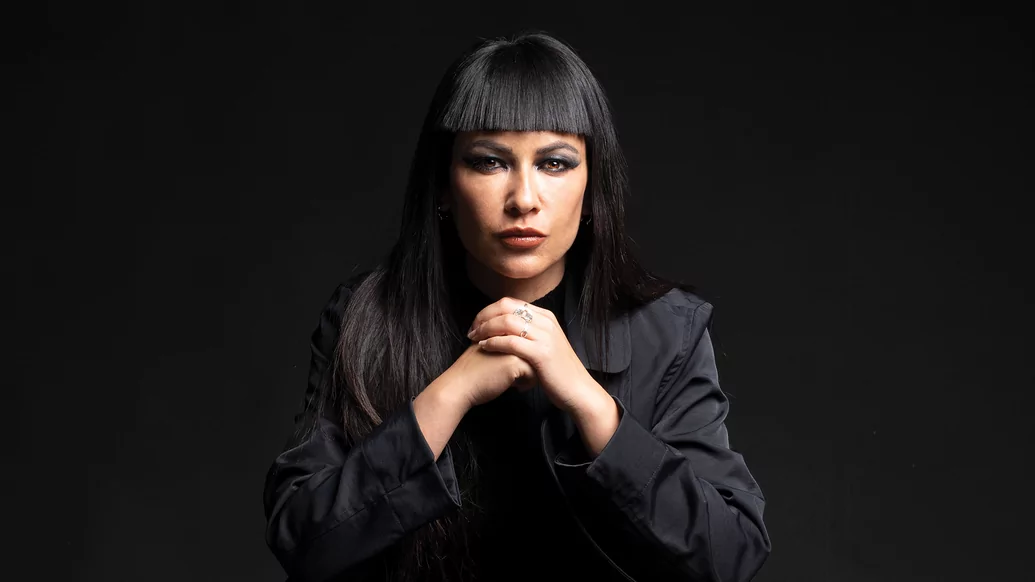
“Ibiza is the place that every DJ wants to be, it’s like a portal to the rest of the world” — Fatima Hajji
At 20, Hajji made the 200km move from Salamanca to Madrid to take up formal education on production, finding role models in Germany’s Monika Kruse and Dutch hard techno legend Miss Djax along the way. Utilising her skilful ear honed behind the decks, she released her debut EP, ‘Turblasmin’, in 2008 through Sergy Casttle’s Xtiluxe Records — a dark, percussive project with an unremitting tech core, and a serious indication of what was to come.
Hajji’s first commercially popular track, ‘Violines’, came several years later in 2013. It was a rave-licked techno thumper featuring a bootleg from Algerian raï singer, Cheb Khaled — an old favourite of her father’s. “He used to listen to that one so often, and it was part of my memories,” Hajji shares. “So it’s special in all the senses, and yes definitely it became an anthem — that makes me so proud.” The single, which is celebrating its 10th anniversary this year, would rocket Hajji into techno’s big leagues and cement the adjacent EP as one of her most successful projects to date. “That one was a really special point of my career. Still, today, I get requests to play it,” she smiles.
Hajji would return to play on the island regularly throughout the following decade, from Amnesia and DC-10 to the now-shuttered superclub, Privilege Ibiza. It’s a particularly memorable party at Eden in 2017 that she recalls most fondly, though. “I had the opportunity to perform with my label showcase during the week at Eden that has an amazing sound and a great team as well,” she explains. “The next year they booked me for the opening party and that was the first time I felt a packed club on the island. I made some more parties at Eden with my label and finally I had the opportunity to do the last one at Amnesia with [my label] Silver M.”
In 2023, Hajji has arguably had her biggest Ibiza season yet. “I [was] back this year for two more parties in August and October,” she begins, “also I [had] DC-10 with Exhale by Amelie Lens in September, and a very special surprise for the closings in October. I’m really excited [about] this season and I’ve been working towards it for a decade.” When she’s not spinning serrated techno on the Isle’s biggest dancefloors, Hajji has been soaking up the Balearic scenery — from the warm, cobbled streets of Dalt Vila to the pine-clad hills wrapped around the coast. “The whole island is amazing, I like to discover it a bit each time I have the opportunity to go there,” she effuses. “The next one will probably be a good chance to dive, and the place which cannot be missed is Formentera... [it’s the] best place ever to chill a bit after a party.”
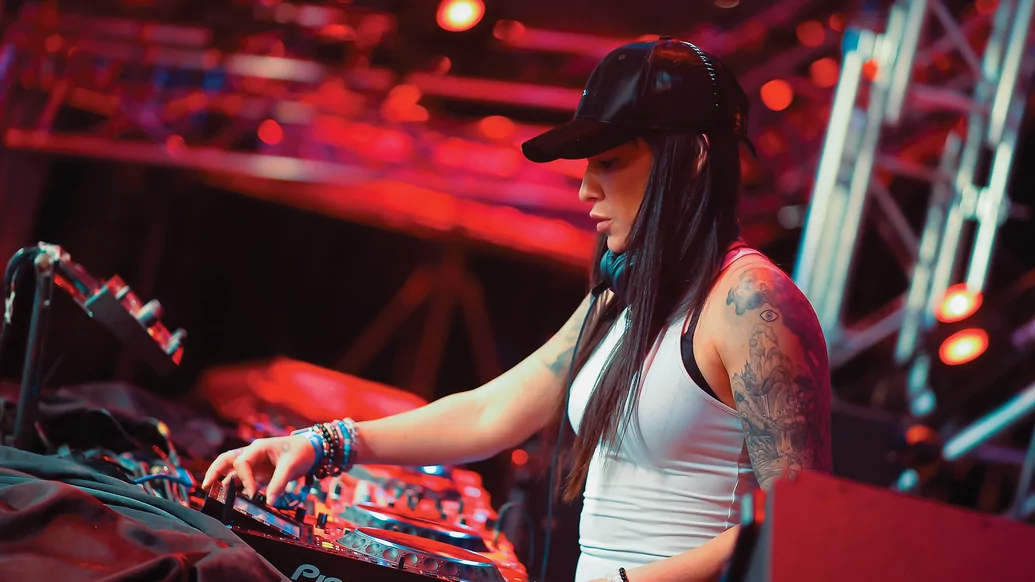
Hajji has also recently discovered the power of meditation — which she cites as another way to stay grounded after the adrenaline of back-to-back shows. “It’s my latest challenge,” she explains. “I’m working hard to get some short moments everyday with my mind empty of noise, and it’s a hard thing to do but really satisfying when achieved, and important for mental health.” She’s already been putting it to the test during one of her biggest years to date, kicking off back in January with a seven-hour stint at CODE by Fabrik while most people were still digesting their parsnips. The set, which is available in full on Hajji’s YouTube, is a mesmerising feat of musicianship that sees her fist-pump her way through almost 400 minutes of full-throttle techno from the archives, without allowing the energy of the crowd to dip for a second.
The tunes on her latest Factory 93 release, ‘Antracita’ / ‘Konfi’, have been a mainstay in these recent sets, and hoisted the bar higher than ever for upcoming releases. “It was great to have that request for that amazing brand,” Hajji raves. “I’m so happy to be on their label and also in some of their massive events in the US. Once I got the option to release with them, I pushed hard on the studio to get a cool couple of tracks that I’d played a lot during this year, and this is the most important thing to me.”
Somewhere between the festival slots and residencies, dog walks and downward dogs, Hajji has also been hard at work in the studio on her forthcoming album. “I put much effort on the release of my first album, and with the year so busy and plenty of trips I did not have much time to finish the second, but it’s in the pipeline now,” she grins. Her current plan is to release one track per month, as we’re assured “it’s better for the stream format”. “I’m expecting to have it ready in the following months, but every time I sit at the studio I get new ideas and want to improve some changes. The good thing is that I’m not in a hurry, and will only release it when totally satisfied with the sound.”
Despite having some of the biggest dates in the techno calendar in her diary, and a bevy of new releases on the horizon, Hajji’s aim for the rest of the year remains a humble one: “Just keep doing my work and make the people who attend my shows happy. It’s so gratifying to give them back a bit of the positive energy they transmit to me.”


